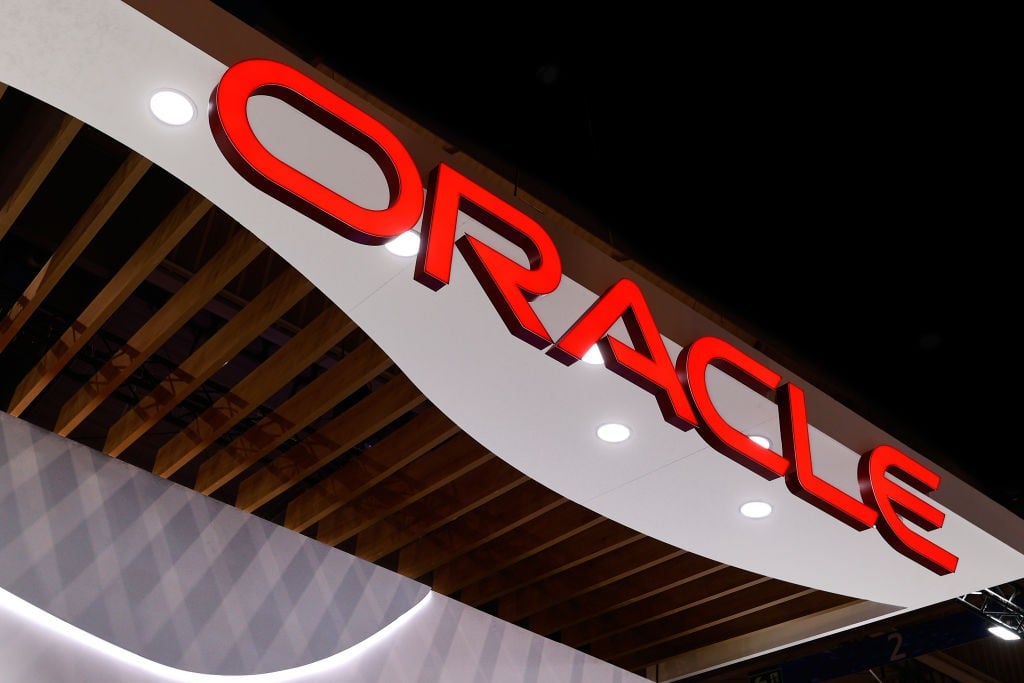Shares of database and cloud giant Oracle (ORCL +5.09%) rallied 24.4% in September, according to data from S&P Global Market Intelligence.
Oracle named two new co-CEOs to succeed current CEO Safra Katz, and the Donald Trump Administration also gave its approval to the general terms for Oracle to acquire part of TikTok U.S., and to also manage the app.
Normally, those would have been fairly consequential events, but they weren't really the reason for Oracle's September rise. While the CEO change was significant, Chairman Larry Ellison is still heavily involved in Oracle's operations and strategy.
Rather, the main event was Oracle's second quarter earnings call Sept. 9, when the company disclosed an absolutely massive increase in its cloud unit's remaining performance obligations (RPO). That sent Oracle's stock up nearly 40% the following day -- an astonishing rally for a company of that size -- before the stock settled back into a 24.4% gain.

Image source: Getty Images.
Oracle's RPO goes parabolic

NYSE: ORCL
Key Data Points
Interestingly, when Oracle reported first fiscal quarter earnings, it missed expectations on both the top and bottom lines, with revenue growing a solid-but-not-spectacular 12.3%.
But of course, it wasn't the prior quarter but rather the future that got investors incredibly excited. To that end, Oracle recorded a massive 359% increase in its cloud unit's remaining performance obligations (RPO), which is contracted capacity to be used in future years.
It was subsequently reported the massive growth was due to OpenAI, which signed a $300 billion agreement to rent AI compute capacity from Oracle for five years starting in 2027.
OpenAI is the creator of ChatGPT, the first mover in AI large language models. So while the massive increase in Oracle's RPO was great to see, some might have been skeptical about where the money-losing OpenAI would find all the cash needed to fulfill the contract.
The question was partially answered later in the month, when Nvidia (NVDA 0.10%) and OpenAI agreed to a long-term funding agreement. Under that agreement, Nvidia will invest up to $100 billion in OpenAI in order to fund 10 gigawatts of data centers, with the first tranche set to come online in late 2026.
So, it appears that Nvidia will help OpenAI pay for its massive new cloud contract with Oracle, which likely alleviated at least some of the potential funding concerns for Oracle's RPO.
Can the Oracle-OpenAI-Nvidia trio take on the rest of the Magnificent Seven?
The artificial intelligence wars are heating up, with the major cloud computing companies in the Magnificent Seven spending tens of billions or even $100 billion-plus this year to win the AI race, and perhaps even achieve artificial general intelligence.
Coming into the month, Oracle was an AI player, though not one of the biggest as a distant fourth-place cloud provider. OpenAI, the first mover in LLMs, is still a startup, growing fast but still losing billions every year. And while Nvidia dominates in AI GPUs today, all the big clouds are also developing their own custom AI chips.
So these three players, which all have strengths but lack the all-in-one breadth of the leading cloud infrastructure players, appeared to team up in September. It will be very interesting to see if the three-way alliance can outpace the rest of the cloud giants in the AI races, which should get very interesting through the rest of this decade.






